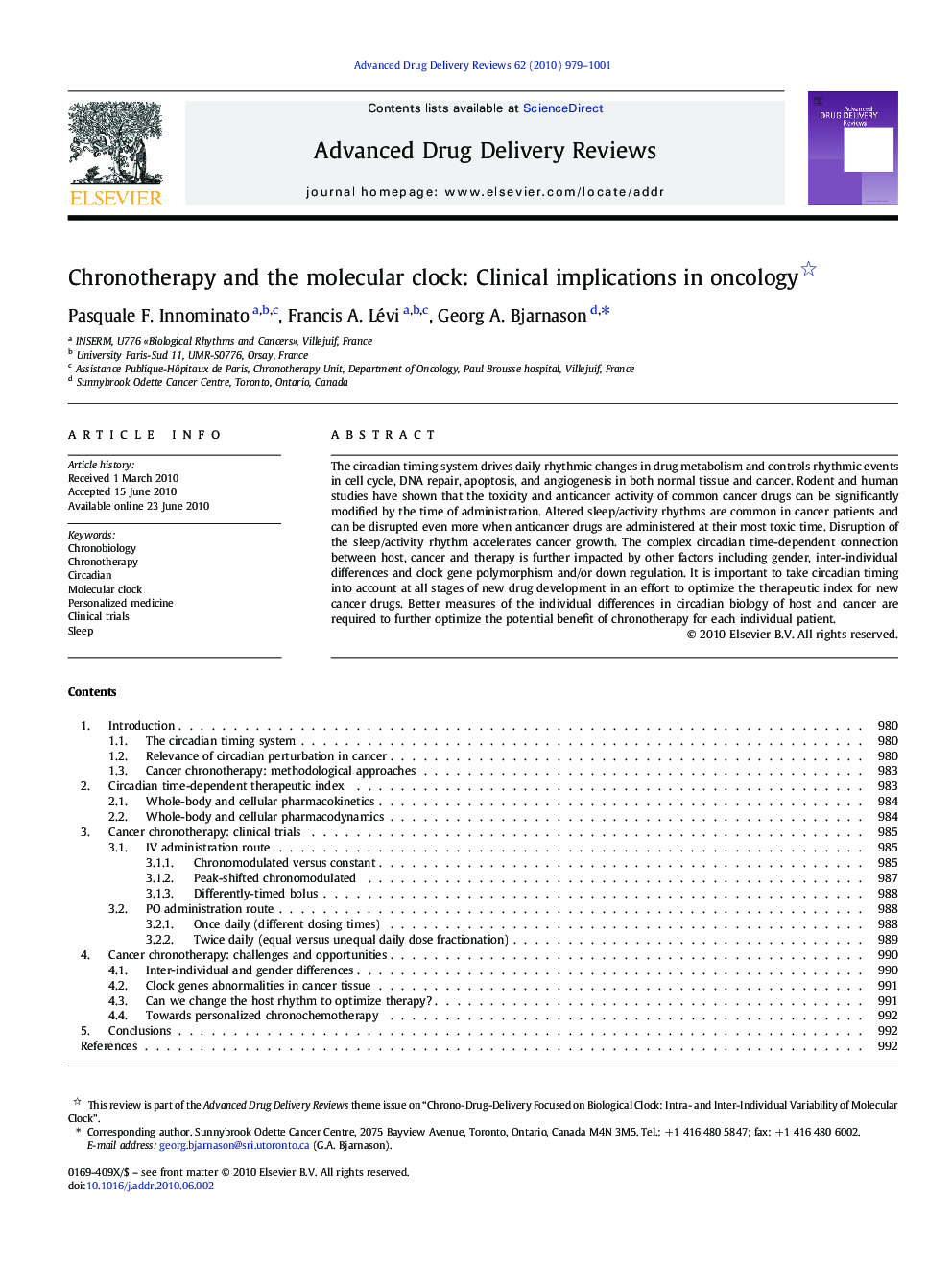| Article ID | Journal | Published Year | Pages | File Type |
|---|---|---|---|---|
| 2072242 | Advanced Drug Delivery Reviews | 2010 | 23 Pages |
The circadian timing system drives daily rhythmic changes in drug metabolism and controls rhythmic events in cell cycle, DNA repair, apoptosis, and angiogenesis in both normal tissue and cancer. Rodent and human studies have shown that the toxicity and anticancer activity of common cancer drugs can be significantly modified by the time of administration. Altered sleep/activity rhythms are common in cancer patients and can be disrupted even more when anticancer drugs are administered at their most toxic time. Disruption of the sleep/activity rhythm accelerates cancer growth. The complex circadian time-dependent connection between host, cancer and therapy is further impacted by other factors including gender, inter-individual differences and clock gene polymorphism and/or down regulation. It is important to take circadian timing into account at all stages of new drug development in an effort to optimize the therapeutic index for new cancer drugs. Better measures of the individual differences in circadian biology of host and cancer are required to further optimize the potential benefit of chronotherapy for each individual patient.
